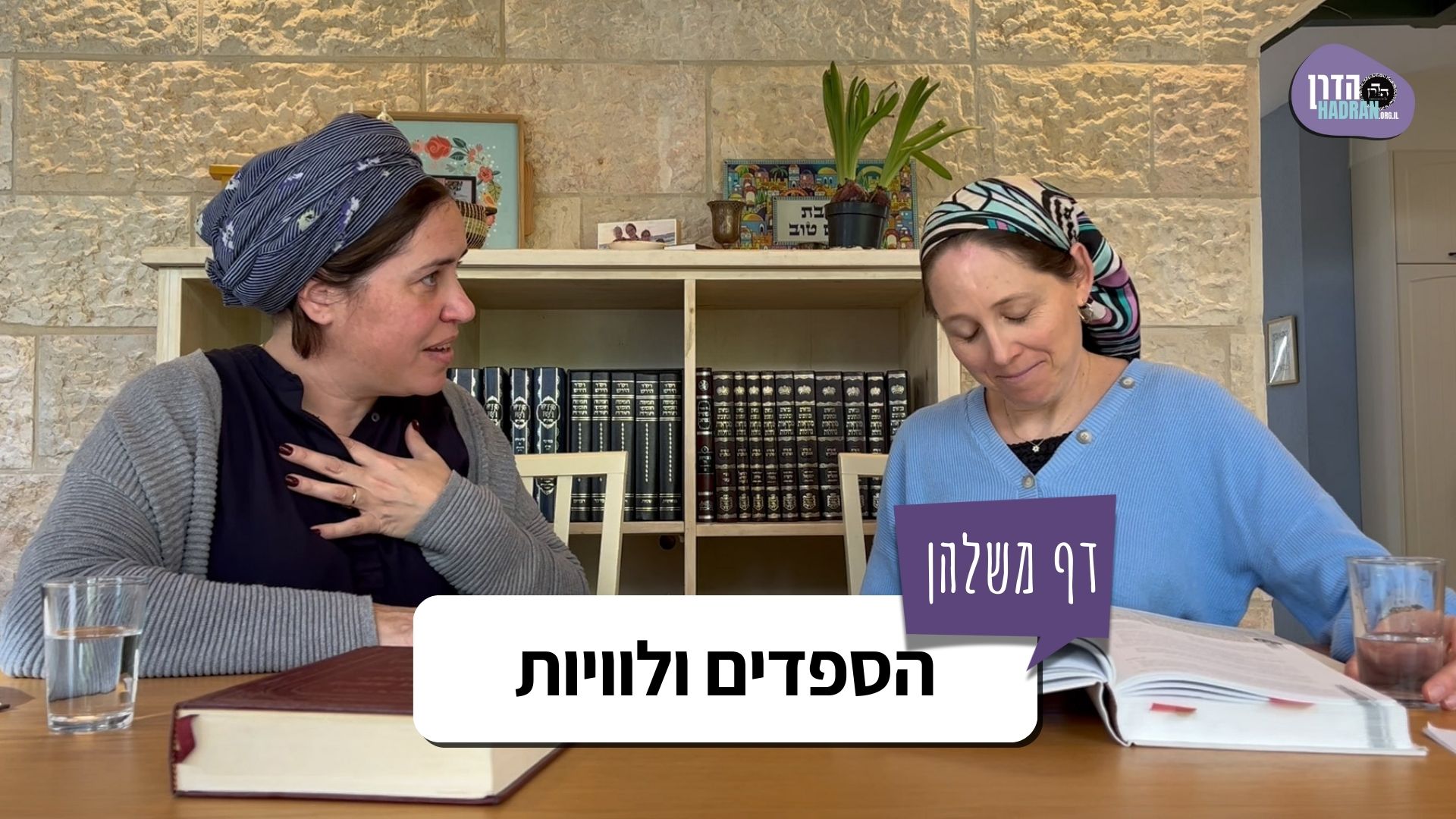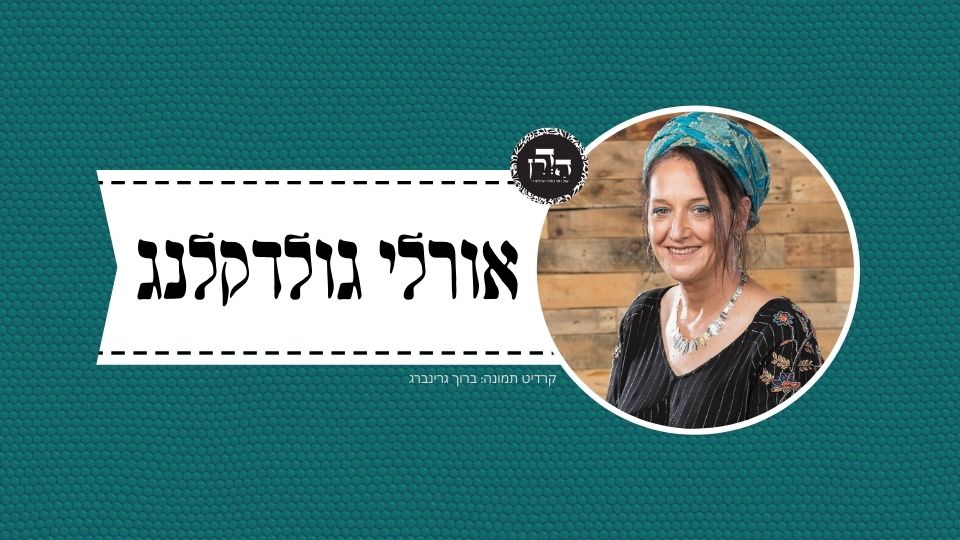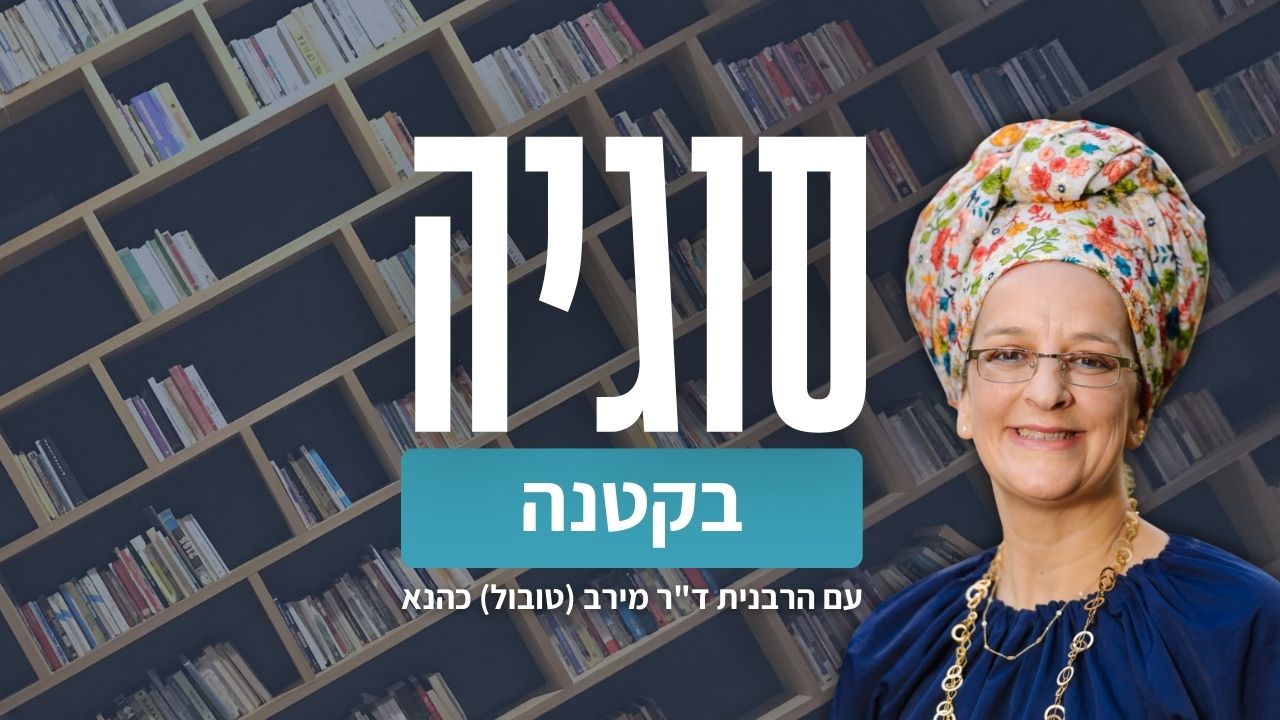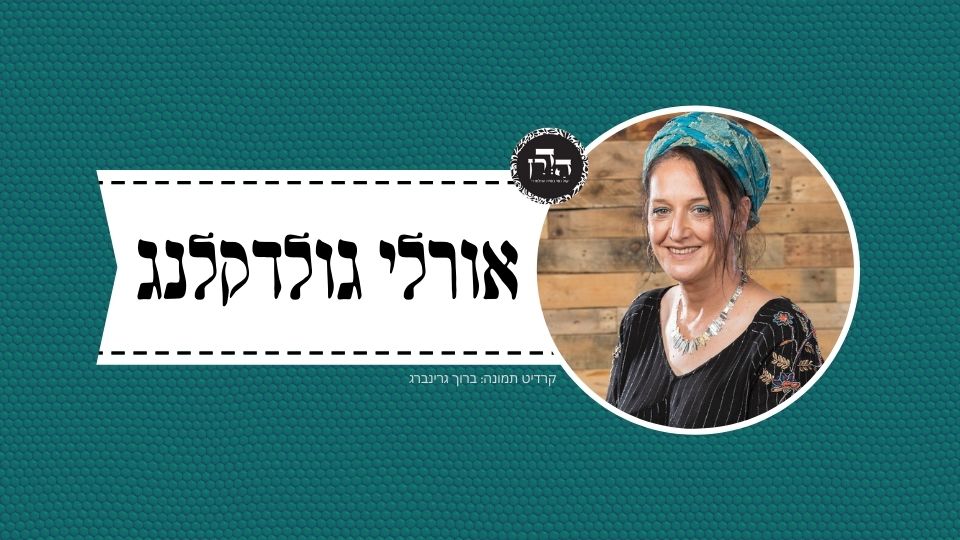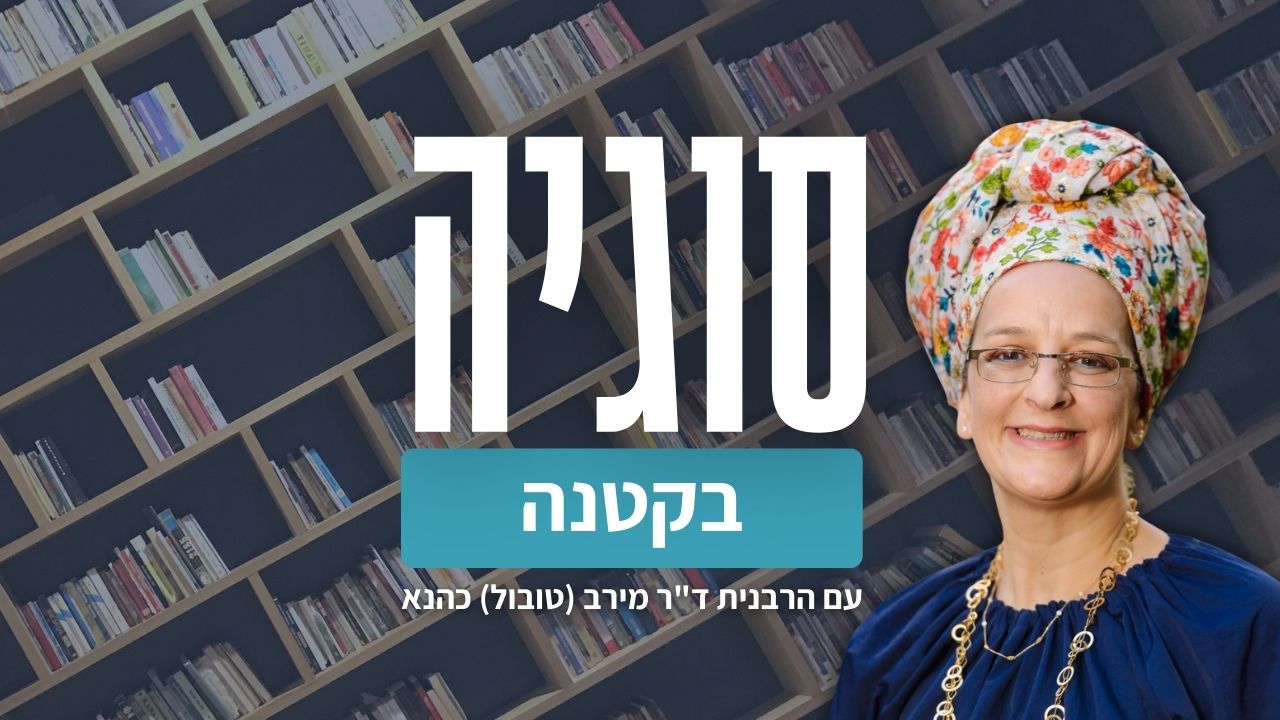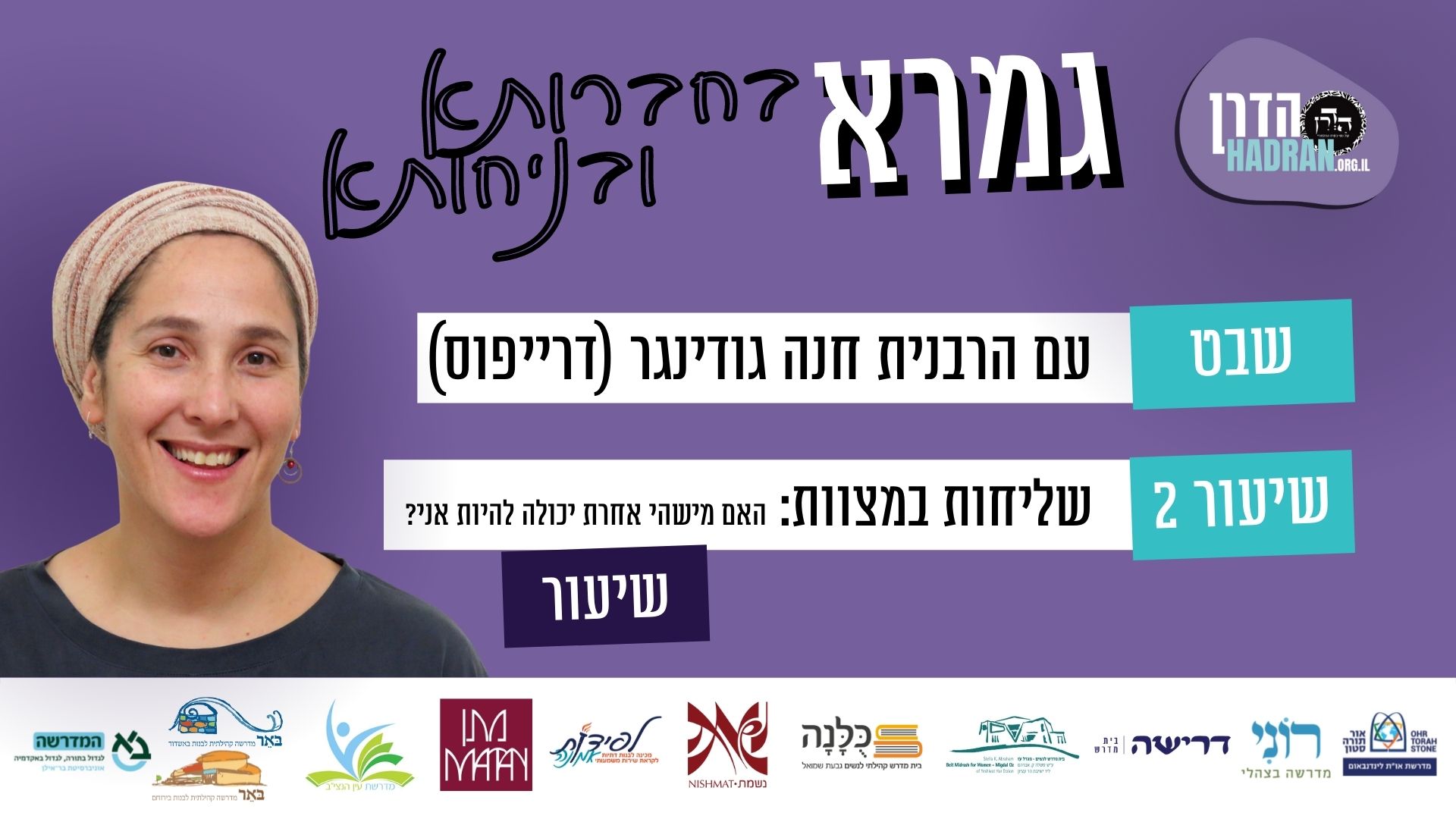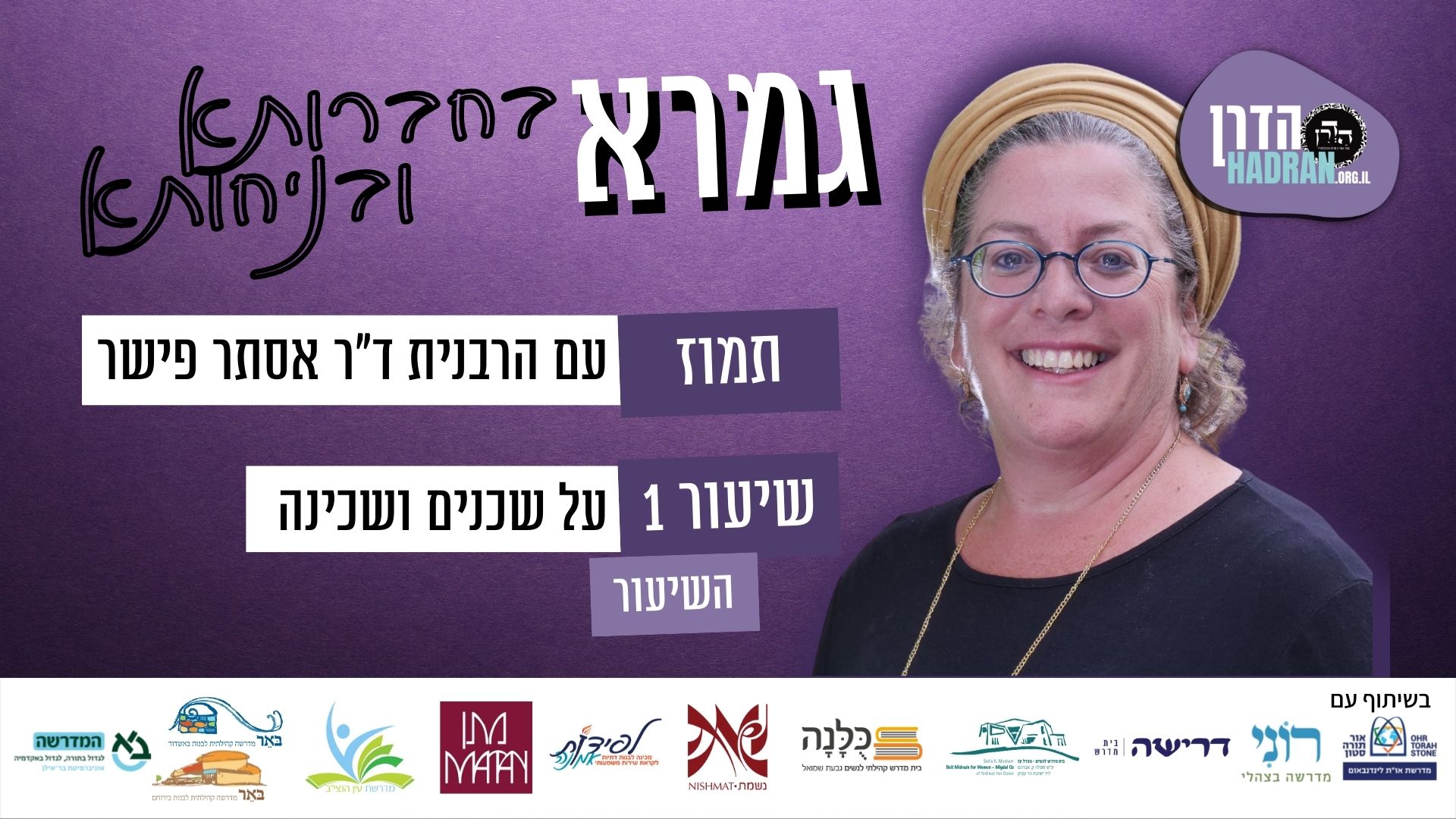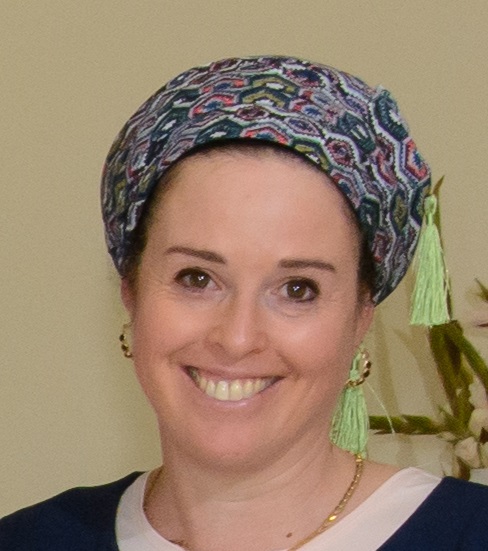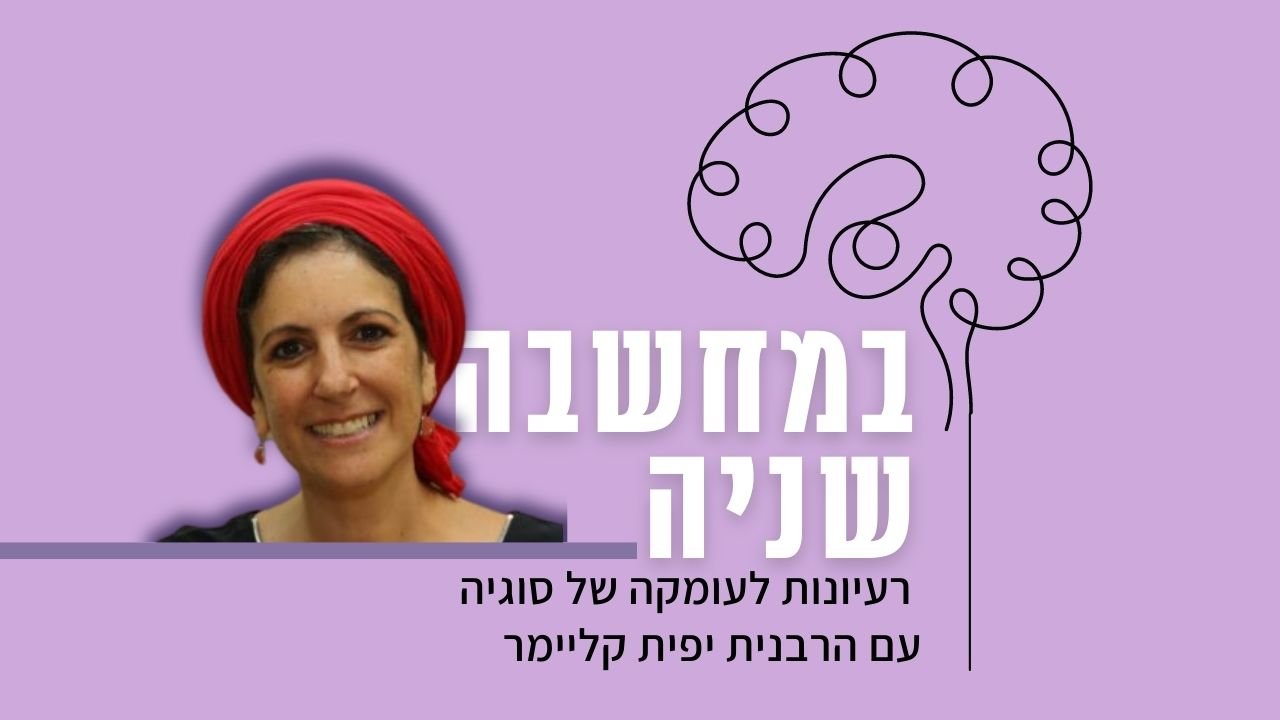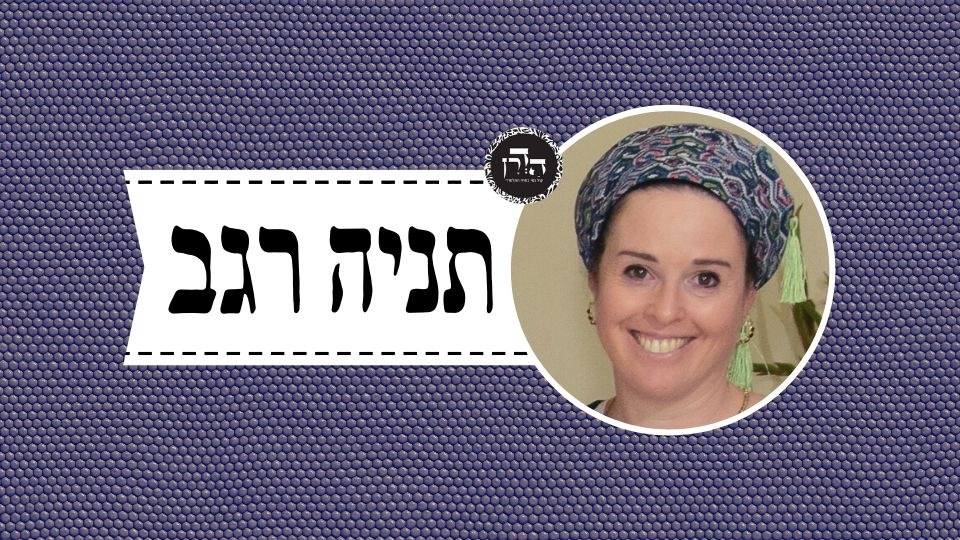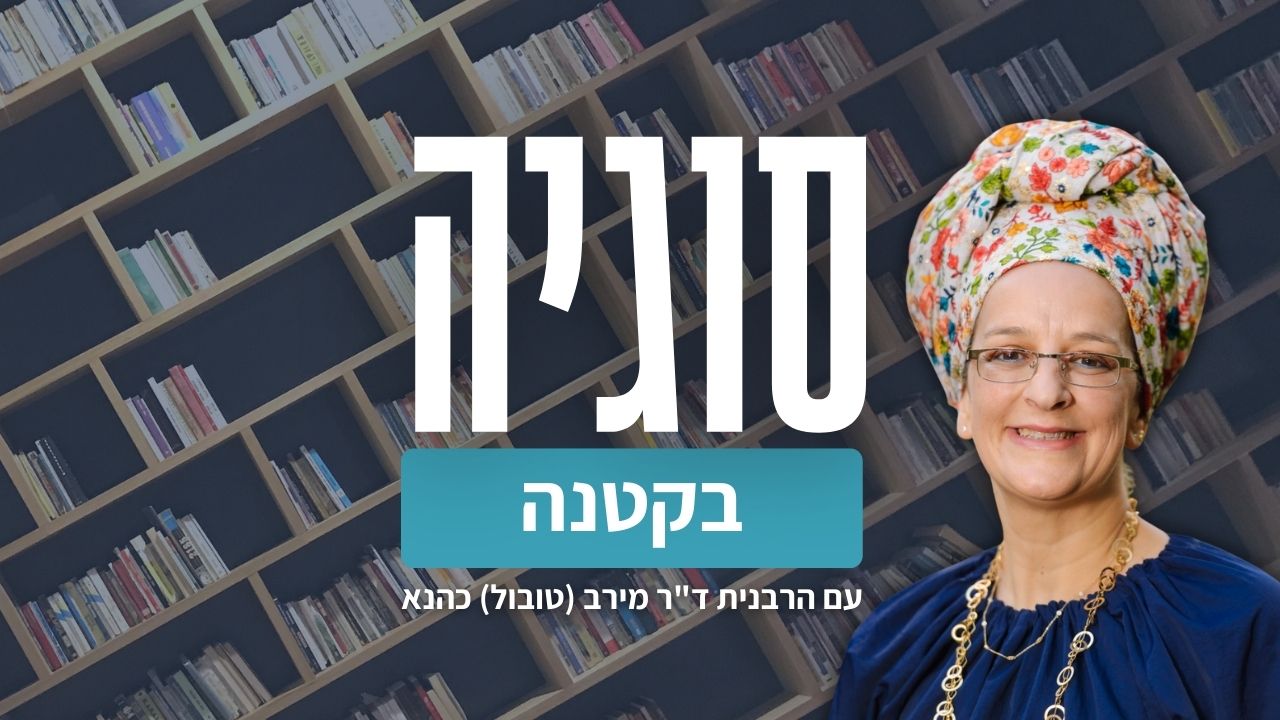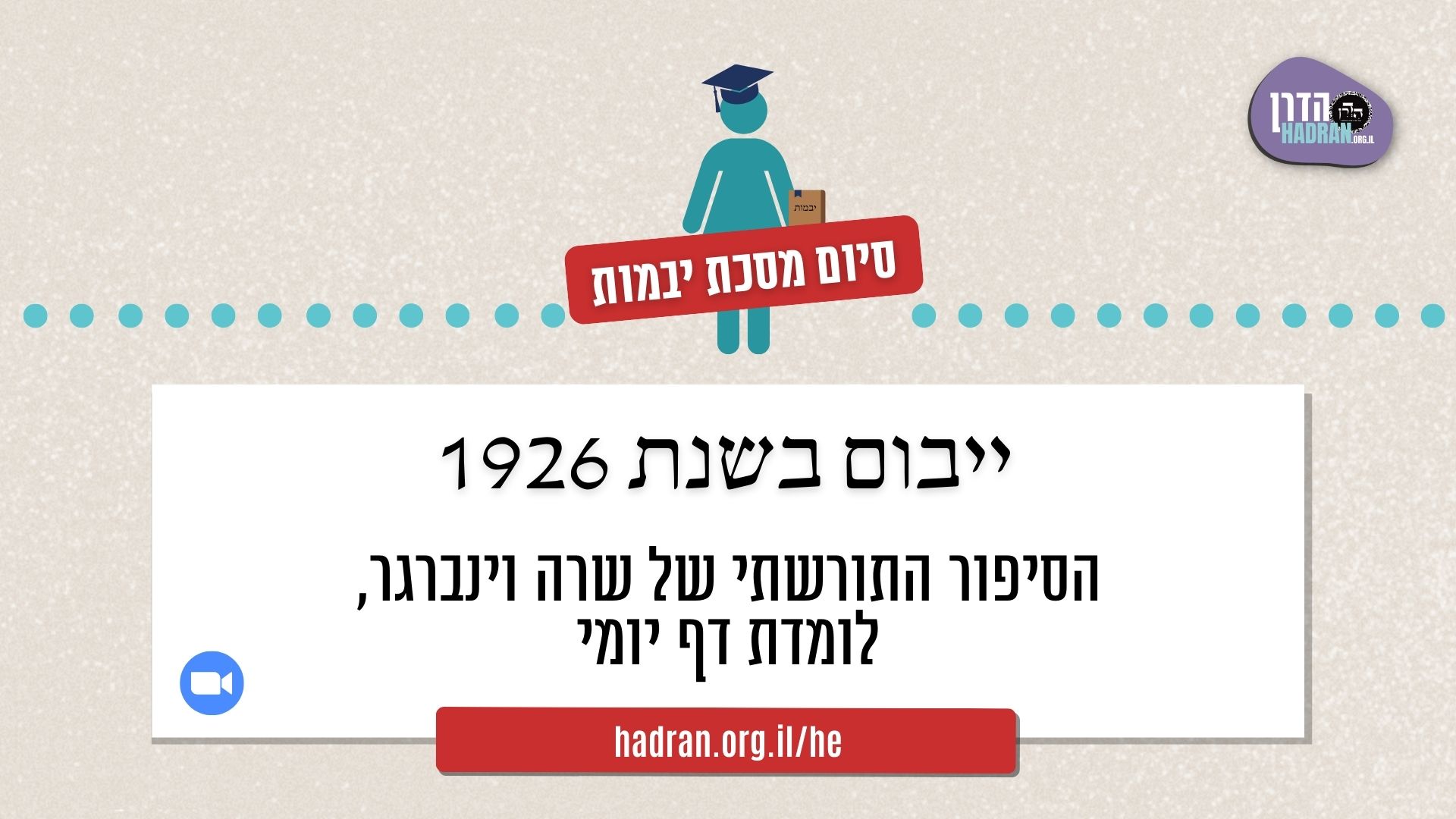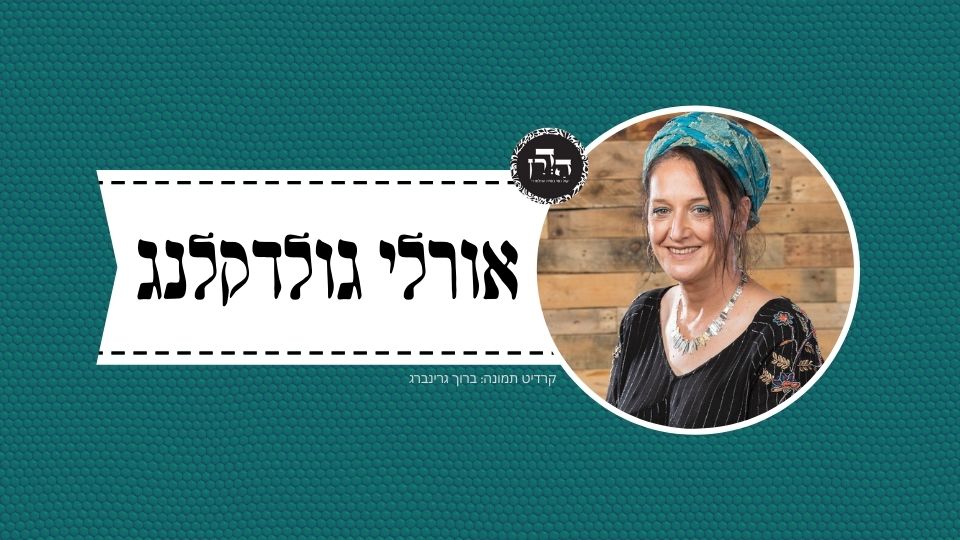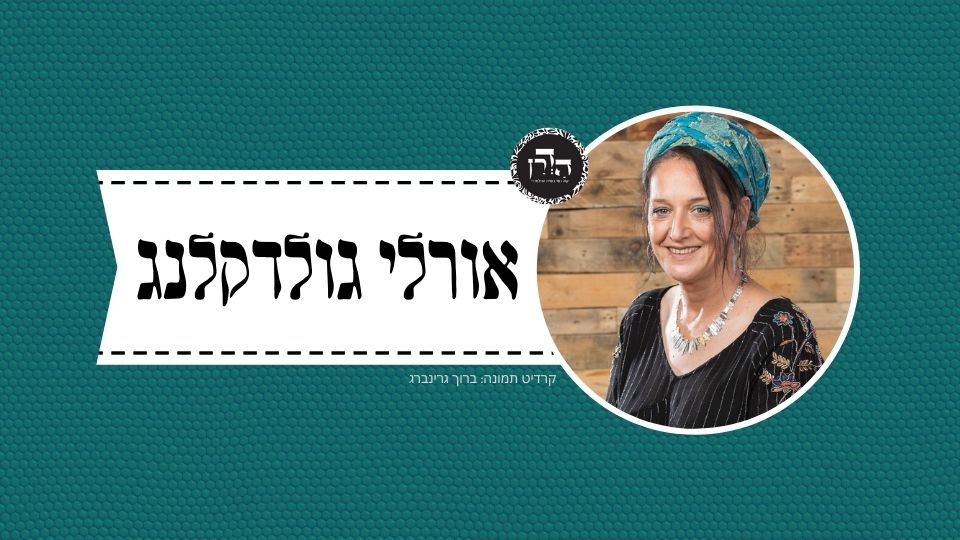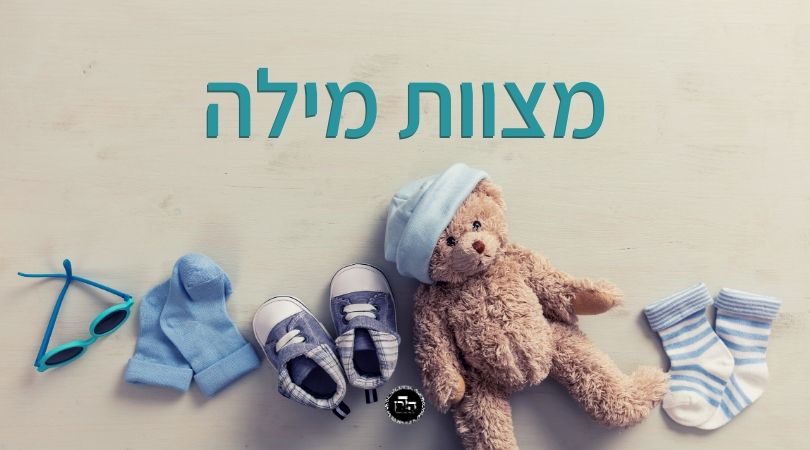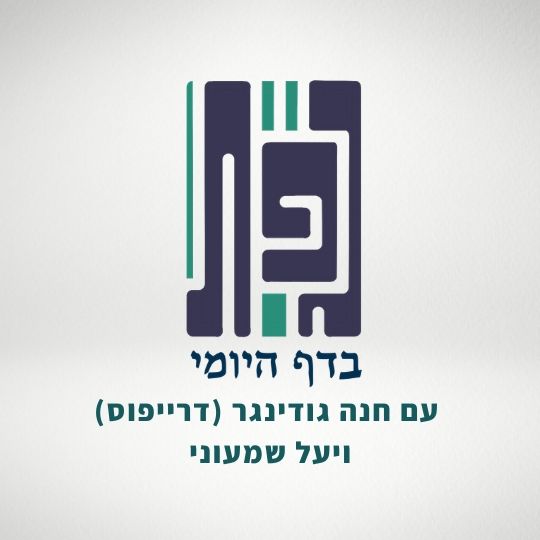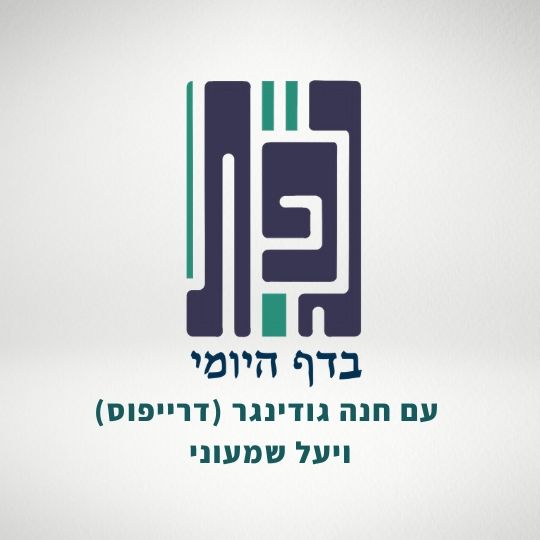>מסופר על ההיתר הגדול שרבי התיר בבית שאן לא להצריך הפרשת תרומות ומעשרות (על דברים שאינם דגן תירוש ויצהר). מה הסיפור עם החמור של ר’ פנחס בן יאיר שלא אכל פירות שאינם מעושרים? סיפור זה בא בהקשר של סיפור ארוך על ר’ פנחס בו יאיר בדרכו לפדות שבויים. מסופר עליו שלא היה מוכל לסעוד אצל אחרים.
הלימוד השבוע מוקדש לזכות ולשלום הַיְימׇנוֹט אֱמוּנָה בַּת באנצ’י (קָסָאוּ) בת 11 שנעלמה במקום מגוריה בצפת, לפני שנתיים, ביום ט”ז אדר תשפ”ד (25.2.24), ולא נודעו עקבותיה.
הלימוד השבוע מוקדש למען ביטחון המדינה, החיילים והאזרחים, ולמען חירותו של העם האיראני. שנזכה בקרוב שיתקיים בנו הפסוק: "לַיְּהוּדִים הָיְתָה אוֹרָה וְשִׂמְחָה וְשָׂשֹׂן וִיקָר”.
הלימוד השבוע מוקדש לזכות וְלִשְׁלוֹם הָיימָנוֹט אֱמוּנָה בַּת באנצ’י (קָסָאוּ), בת 11 שנעלמה במקום מגוריה בצפת, לפני שנתיים, ביום ט”ז אדר תשפ״ד (25.2.24), ולא נודעו עקבותיה. אנו מתפללים שֶׁתִּמָּצֵא וְתוּשַׁב לביתה במהרה!
רוצה להקדיש שיעור?

כלים
הלימוד השבוע מוקדש לזכות ולשלום הַיְימׇנוֹט אֱמוּנָה בַּת באנצ’י (קָסָאוּ) בת 11 שנעלמה במקום מגוריה בצפת, לפני שנתיים, ביום ט”ז אדר תשפ”ד (25.2.24), ולא נודעו עקבותיה.
הלימוד השבוע מוקדש למען ביטחון המדינה, החיילים והאזרחים, ולמען חירותו של העם האיראני. שנזכה בקרוב שיתקיים בנו הפסוק: "לַיְּהוּדִים הָיְתָה אוֹרָה וְשִׂמְחָה וְשָׂשֹׂן וִיקָר”.
הלימוד השבוע מוקדש לזכות וְלִשְׁלוֹם הָיימָנוֹט אֱמוּנָה בַּת באנצ’י (קָסָאוּ), בת 11 שנעלמה במקום מגוריה בצפת, לפני שנתיים, ביום ט”ז אדר תשפ״ד (25.2.24), ולא נודעו עקבותיה. אנו מתפללים שֶׁתִּמָּצֵא וְתוּשַׁב לביתה במהרה!
כלים
העמקה
רוצה להבין מה באמת קורה מתחת לפני השטח של הסוגיה?
שיעורים, פודקאסטים והרחבות של מיטב המורות שלנו יפתחו לך עוד זוויות וכיווני חשיבה.
חדשה בלימוד הגמרא?
זה הדף הראשון שלך? איזו התרגשות עצומה! יש לנו בדיוק את התכנים והכלים שיעזרו לך לעשות את הצעדים הראשונים ללמידה בקצב וברמה שלך, כך תוכלי להרגיש בנוח גם בתוך הסוגיות המורכבות ומאתגרות.
פסיפס הלומדות שלנו
גלי את קהילת הלומדות שלנו, מגוון נשים, רקעים וסיפורים. כולן חלק מתנועה ומסע מרגש ועוצמתי.
חולין ז
אלא מקום הניחו לו אבותיו להתגדר בו אף אני מקום הניחו לי אבותי להתגדר בו
Rather, it must be that in not eradicating the serpent, his ancestors left Hezekiah room through which to achieve prominence [lehitgader]. I too can say that my ancestors left me room through which to achieve prominence by permitting untithed produce from Beit She’an.
מכאן לתלמיד חכם שאמר דבר הלכה שאין מזיחין אותו ואמרי לה אין מזניחין אותו ואמרי לה אין מזחיחין אותו
The Gemara adds: From here one learns with regard to a Torah scholar who states a new matter of halakha that one does not move [meziḥin] him from his position; and some say: One does not disregard [mazniḥin] him; and some say: One does not attribute his innovative statement to his conceit [mazḥiḥin].
מאן דאמר מזיחין כדכתיב (שמות כח, כח) ולא יזח החשן ומאן דאמר אין מזניחין דכתיב (איכה ג, לא) כי לא יזנח לעולם ה’ ומאן דאמר מזחיחין דתנן משרבו זחוחי הלב רבו מחלוקות בישראל
The Gemara explains: With regard to the one who says meziḥin, it is as that which is written: “And the breastplate shall not be loosed [yizaḥ] from the ephod” (Exodus 28:28). And with regard to the one who says: One does not disregard [mazniḥin], it is as it is written: “For the Lord will not abandon [yizaḥ] forever” (Lamentations 3:31). And with regard to the one who says mazḥiḥin, it is as we learned in a baraita (Tosefta, Sota 14:9): From the time that those with conceited [zeḥuḥei] hearts proliferated, dispute proliferated among the Jewish people.
מתקיף לה יהודה בריה דר’ שמעון בן פזי ומי איכא למאן דאמר דבית שאן לאו מארץ ישראל היא והכתיב (שופטים א, כז) ולא הוריש מנשה את בית שאן ואת בנותיה ואת תענך ואת בנותיה
Yehuda, son of Rabbi Shimon ben Pazi, objects to the basic halakha: And is there anyone who says that Beit She’an is not part of Eretz Yisrael? But isn’t it written: “And Manasseh did not drive out the inhabitants of Beth She’an and its towns, nor of Taanach and its towns” (Judges 1:27).
אישתמיטתיה הא דאמר ר’ שמעון בן אליקים משום ר’ אלעזר בן פדת שאמר משום ר’ אלעזר בן שמוע הרבה כרכים כבשום עולי מצרים ולא כבשום עולי בבל
The Gemara answers: That which Rabbi Shimon ben Elyakim says in the name of Rabbi Elazar ben Pedat, who says in the name of Rabbi Elazar ben Shammua, escaped the attention of Yehuda: Many cities were conquered by those who ascended from Egypt to Eretz Yisrael, led by Joshua, son of Nun, and were not conquered by those who ascended from Babylonia to Eretz Yisrael in the return to Zion led by Ezra. Among those cities was Beit She’an.
וקסבר קדושה ראשונה קדשה לשעתה ולא קדשה לעתיד לבא והניחום כדי שיסמכו עליהן עניים בשביעית
And Rabbi Yehuda HaNasi holds: The initial consecration with which Eretz Yisrael was sanctified during the era of Joshua, son of Nun, in terms of the obligation to fulfill land-based mitzvot, sanctified Eretz Yisrael for its time but did not sanctify it forever. Rather, the obligation lapsed with the exile to Babylonia. When those who ascended from Babylonia returned to Eretz Yisrael and sanctified the land, they left certain places unsanctified, so that the poor would rely upon them for sustenance during the Sabbatical Year, when produce is not plentiful. Since these areas were not sanctified, it is permitted to sow crops there during the Sabbatical Year, and the poor will not go hungry. Once Rabbi Yehuda HaNasi discovered that Beit She’an was one of those cities, he exempted it from land-based mitzvot.
אמר ליה ר’ ירמיה לרבי זירא והא ר’ מאיר עלה בעלמא הוא דאכיל אמר ליה מאגודה אכליה ותנן ירק הנאגד משיאגד
Rabbi Yirmeya said to Rabbi Zeira: How did Rabbi Yehuda HaNasi rely on the testimony of Rabbi Yehoshua ben Zeruz to exempt from terumot and tithes produce that grows in Beit She’an? But wasn’t it merely a leaf that Rabbi Meir ate? It is permitted to eat untithed produce incidentally, not in the framework of a meal. Rabbi Zeira said to him: He ate the leaf from a bundle, and we learned in a mishna (Ma’asrot 1:5): With regard to a vegetable that is typically bound in a bundle, one is obligated to separate teruma and tithes from the moment that it is bound. From that point, one may not eat from it even incidentally before tithing.
ודלמא לאו אדעתיה השתא בהמתן של צדיקים אין הקב”ה מביא תקלה על ידן צדיקים עצמן לא כל שכן
Rabbi Yirmeya said to Rabbi Zeira: And perhaps it was not on Rabbi Meir’s mind, and his attention was diverted when he ate the leaf. Rabbi Zeira answered: Now, since even with regard to the animals of the righteous, the Holy One, Blessed be He, does not generate mishaps through them, is it not all the more so true that the righteous themselves would not experience mishaps?
ודלמא עישר עליהם ממקום אחר לא נחשדו חברים לתרום שלא מן המוקף ודלמא נתן עיניו בצד זה ואכל בצד אחר אמר ליה חזי מאן גברא רבה קמסהיד עליה
Rabbi Yirmeya asked: And perhaps Rabbi Meir tithed those leaves from produce in another place. Rabbi Zeira answered: Ḥaverim are not suspected of separating teruma from produce that is not proximate to the produce for which it is being separated. Rabbi Yirmeya asked: And perhaps Rabbi Meir set his sight on this side of the vegetable with the intent of separating teruma and tithes, and ate a leaf on the other side. Rabbi Zeira said to him: See who the great man is who is testifying about Rabbi Meir. Certainly a man of the stature of Rabbi Yehoshua ben Zeruz accurately observed and reported Rabbi Meir’s actions.
מאי בהמתן של צדיקים דרבי פנחס בן יאיר הוה קאזיל לפדיון שבויין פגע ביה בגינאי נהרא
§ The Gemara asks: What is the reference to animals of the righteous, about whom it is stated that God does not generate mishaps through them? It is based on the incident where Rabbi Pineḥas ben Ya’ir was going to engage in the redemption of captives, and he encountered the Ginai River.
אמר ליה גינאי חלוק לי מימך ואעבור בך אמר ליה אתה הולך לעשות רצון קונך ואני הולך לעשות רצון קוני אתה ספק עושה ספק אי אתה עושה אני ודאי עושה אמר ליה אם אי אתה חולק גוזרני עליך שלא יעברו בך מים לעולם חלק ליה
He said to the river: Ginai, part your water for me and I will pass through you. The river said to him: You are going to perform the will of your Maker and I am going to perform the will of my Maker, to flow in my path. With regard to you, it is uncertain whether you will perform His will successfully, and it is uncertain whether you will not perform His will successfully. I will certainly perform His will successfully. Rabbi Pineḥas ben Ya’ir said to the river: If you do not part, I will decree upon you that water will never flow through you. The river parted for him.
הוה ההוא גברא דהוה דארי חיטי לפיסחא אמר ליה חלוק ליה נמי להאי דבמצוה עסיק חלק ליה הוה ההוא טייעא דלווה בהדייהו אמר ליה חלוק ליה נמי להאי דלא לימא כך עושים לבני לויה חלק ליה
There was a certain man who was carrying wheat for the preparation of matza for Passover. Rabbi Pineḥas ben Ya’ir said to the river: Part your waters for that person too, as he is engaged in the performance of a mitzva. The river parted for him. There was a certain Arab [taya’a] who was accompanying them. Rabbi Pineḥas ben Ya’ir said to the river: Part your waters for that person too, so that he will not say: Is that what one does to a person who accompanies him? The river parted for him.
אמר רב יוסף כמה נפיש גברא ממשה ושתין רבוון דאילו התם חד זימנא והכא תלתא זימנין ודלמא הכא נמי חדא זימנא אלא כמשה ושתין רבוון
Rav Yosef said: How great is this man, Rabbi Pineḥas ben Ya’ir, greater than Moses and the six hundred thousand who left Egypt, as there, at the Red Sea, the waters parted one time, and here the waters parted three times. The Gemara asks: And perhaps here too, the waters parted one time, and the river began to flow again only after all three of them passed. Rather, this man was as great as Moses and the six hundred thousand children of Israel.
אקלע לההוא אושפיזא רמו ליה שערי לחמריה לא אכל
After crossing the river, Rabbi Pineḥas ben Ya’ir happened to come to a certain inn [ushpiza]. His hosts cast barley before his donkey for him to eat. The donkey did not eat it.
חבטינהו לא אכל נקרינהו לא אכל אמר להו דלמא לא מעשרן עשרינהו ואכל אמר ענייה זו הולכת לעשות רצון קונה ואתם מאכילין אותה טבלים
The hosts sifted the barley with a utensil, but the donkey did not eat it. They separated the chaff from the barley by hand, but the donkey did not eat it. They wondered why the donkey would not eat the barley. Rabbi Pineḥas ben Ya’ir said to his hosts: Perhaps the barley is not tithed. They tithed it and the donkey ate it. Rabbi Pineḥas ben Ya’ir said: This poor animal is going to perform the will of its Maker, and you are feeding it untithed produce? Rabbi Zeira was referring to this donkey when it spoke of God preventing mishaps from occurring through animals of the righteous.
ומי מיחייבא והתנן הלוקח לזרע ולבהמה וקמח לעורות ושמן לנר ושמן לסוך בו את הכלים פטור מהדמאי
The Gemara asks: And is one who purchases grain that is demai in order to feed his animal obligated to tithe it? But didn’t we learn in a mishna (Demai 1:3): One who purchases grain in the market for sowing or for feeding an animal, or flour to process animal hides, or oil to kindle a lamp, or oil to smear on vessels is exempt from the obligation of tithing demai?
התם הא אתמר עלה אמר רבי יוחנן לא שנו אלא שלקחן מתחלה לבהמה אבל לקחן מתחלה לאדם ונמלך עליהם לבהמה חייב לעשר והתניא הלוקח פירות מן השוק לאכילה ונמלך עליהן לבהמה הרי זה לא יתן לא לפני בהמתו ולא לפני בהמת חברו אלא אם כן עישר
The Gemara answers: There, it was stated with regard to that mishna that Rabbi Yoḥanan says: They taught this only in a case where one purchased those items initially for the animal or for the other purposes enumerated in the mishna, but if he purchased them initially for a person and reconsidered his plans for them and decided to use them for an animal, he is obligated to tithe the demai. And it is taught in a baraita in support of that understanding: In the case of one who purchases produce from the market for human consumption, and he reconsidered his plans for it and decided to use it for an animal, that person may neither place it before his animal nor before the animal of another unless he tithed the produce.
שמע רבי נפק לאפיה אמר ליה רצונך סעוד אצלי אמר לו הן צהבו פניו של רבי
Rabbi Yehuda HaNasi heard that Rabbi Pineḥas ben Ya’ir arrived, and he emerged to greet him. Rabbi Yehuda HaNasi said to him: Is it your desire to dine with me? Rabbi Pineḥas ben Ya’ir said to him: Yes. Rabbi Yehuda HaNasi’s face beamed [tzahavu], as it was well known that Rabbi Pineḥas ben Ya’ir did not accept invitations to dine with others.
אמר לו כמדומה אתה שמודר הנאה מישראל אני ישראל קדושים הן יש רוצה ואין לו ויש שיש לו ואינו רוצה וכתיב (משלי כג, ו) אל תלחם [את] לחם רע עין ואל תתאו למטעמותיו כי כמו שער בנפשו כן הוא אכול ושתה יאמר לך ולבו בל עמך ואתה רוצה ויש לך
Rabbi Pineḥas ben Ya’ir said to Rabbi Yehuda HaNasi: Are you under the impression that deriving benefit from the Jewish people is forbidden to me by vow? On the contrary, the Jewish people are holy. I avoid accepting invitations, as there is one who wants to invite guests to dine with him but he does not have the means, and I do not want to enjoy a meal that my host cannot afford. And there is one who has the means but does not want to host guests, and with regard to those people it is written: “Eat not the bread of him that has an evil eye, neither desire his delicacies. For as one that has reckoned within himself, so is he: Eat and drink, says he to you; but his heart is not with you” (Proverbs 23:6–7). But you want to invite guests to dine with you, and you have the means.
מיהא השתא מסרהיבנא דבמלתא דמצוה קא טרחנא כי הדרנא אתינא עיילנא לגבך
But now I am rushing [mesarheivna], as I am engaged in the performance of a matter involving a mitzva. When I come back I will enter to dine with you.
כי אתא איתרמי על בההוא פיתחא דהוו קיימין ביה כודנייתא חוורתא אמר מלאך המות בביתו של זה ואני אסעוד אצלו
When Rabbi Pineḥas ben Ya’ir came back, he happened to enter through that entrance in which white mules were standing. He said: The Angel of Death is in this person’s house, and I will eat with him? White mules were known to be dangerous animals.
שמע רבי נפק לאפיה אמר ליה מזבנינא להו אמר ליה (ויקרא יט, יד) ולפני עור לא תתן מכשול
Rabbi Yehuda HaNasi heard the comment of Rabbi Pineḥas ben Ya’ir and emerged to greet him. He said to him: I will sell the mules. Rabbi Pineḥas ben Ya’ir said to him: You will thereby violate the prohibition: “Nor place a stumbling block before the blind” (Leviticus 19:14), as it is prohibited for any Jew to keep a destructive animal in his possession.
מפקרנא להו מפשת היזקא עקרנא להו איכא צער בעלי חיים קטילנא להו איכא (דברים כ, יט) בל תשחית
Rabbi Yehuda HaNasi said to him: I will declare the mules ownerless. Rabbi Pineḥas ben Ya’ir said to him: You will thereby increase the damage, as there will be no owner to restrain it. Rabbi Yehuda HaNasi said to him: I will remove their hooves so that they will be unable to kick and cause damage. Rabbi Pineḥas ben Ya’ir said to him: There is the requirement to prevent suffering to animals, and you will be violating it. Rabbi Yehuda HaNasi said to him: I will kill them. Rabbi Pineḥas ben Ya’ir said to him: There is the prohibition: Do not destroy items of value.
הוה קא מבתש ביה טובא גבה טורא בינייהו בכה רבי ואמר מה בחייהן כך במיתתן על אחת כמה וכמה דאמר ר’ חמא בר חנינא גדולים צדיקים במיתתן יותר מבחייהן שנאמר (מלכים ב יג, כא) ויהי הם קוברים איש והנה ראו [את] הגדוד וישליכו את האיש בקבר אלישע וילך ויגע האיש בעצמות אלישע ויחי ויקם על רגליו
Rabbi Yehuda HaNasi was greatly imploring him to enter his home until a mountain rose between them and Rabbi Yehuda HaNasi could no longer speak with him. Rabbi Yehuda HaNasi wept and said: If during their lifetimes it is so that the righteous are great, after their death it is all the more so true. The Gemara comments: This is as Rabbi Ḥama bar Ḥanina says: The righteous are greater after their death, more so than during their lifetimes, as it is stated: “And it came to pass, as they were burying a man, that they spied a raiding party; and they cast the man into the tomb of Elisha; and as soon as the man touched the bones of Elisha, he revived, and stood up on his feet” (II Kings 13:21).
אמר ליה רב פפא לאביי ודילמא לקיומי ביה ברכתא דאליהו דכתיב (מלכים ב ב, ט) ויהי נא פי שנים ברוחך אלי אמר ליה אי הכי היינו דתניא על רגליו עמד ולביתו לא הלך
Rav Pappa said to Abaye: This proof from the case of Elisha that the righteous are greater after death is not valid. And perhaps this transpired to fulfill with regard to Elisha the blessing of Elijah, as it is written: “Please, let a double portion of your spirit be upon me” (II Kings 2:9). Elijah revived one dead person and this one is the second revived by Elisha. Abaye said to Rav Pappa: If so, is this consistent with that which is taught in a baraita: The dead person arose on his feet but he did not go to his home, indicating that he had not truly been revived?
אלא במה איקיים כדאמר ר’ יוחנן שריפא צרעת נעמן שהיא שקולה כמת שנאמר (במדבר יב, יב) אל נא תהי כמת
The Gemara asks: But if that is the case, in what manner was Elijah’s blessing fulfilled? It is as Rabbi Yoḥanan says: The blessing was fulfilled when he cured the leprosy of Naaman, since a leper is equivalent to a dead person, as it is stated with regard to Miriam when she was afflicted with leprosy: “Please, let her not be as one dead” (Numbers 12:12).
אמר ר’ יהושע בן לוי למה נקרא שמן ימים שאימתם מוטלת על הבריות דאמר ר’ חנינא מימי לא שאלני אדם על מכת פרדה לבנה וחיה והא קחזינא דחיי אימא וחיית והא קחזינא דמיתסי דחיוורן ריש כרעייהו קא אמרינן
Apropos white mules, which were likened to the Angel of Death, Rabbi Yehoshua ben Levi says: Why are the mules called yemim (see Genesis 36:24)? It is because their terror [eimatam] is cast over all creatures, as Rabbi Ḥanina says: In all my days, no man has asked me about a wound caused him by a white mule and survived, indicating that they are extremely dangerous. The Gemara asks: But haven’t we seen that some people survive after being wounded by a white mule? The Gemara answers: Say instead, no man has asked me about a wound caused him by a mule and the wound healed. The Gemara asks: But haven’t we seen that such wounds heal? The Gemara answers: The wound that we say does not heal is one caused by a mule the top of whose legs are white.
(דברים ד, לה) אין עוד מלבדו אמר רבי חנינא ואפילו כשפים ההיא איתתא דהות קא מהדרא למישקל עפרא מתותיה כרעיה דרבי חנינא אמר לה שקולי לא מסתייעא מילתיך אין עוד מלבדו כתיב והאמר ר’ יוחנן למה נקרא שמן כשפים שמכחישין פמליא של מעלה שאני ר’ חנינא דנפישא זכותיה
The Gemara relates other statements of Rabbi Ḥanina: With regard to the verse: “There is none else beside Him” (Deuteronomy 4:35), Rabbi Ḥanina says: And even sorcery is ineffective against the will of God. The Gemara relates: There was a certain woman who would try to take dust from beneath the feet of Rabbi Ḥanina in order to perform sorcery on him and harm him. Rabbi Ḥanina said to her: Take the dust, but the matter will be ineffective for you, as it is written: “There is none other beside Him.” The Gemara asks: But doesn’t Rabbi Yoḥanan say: Why is sorcery called keshafim? It is an acronym for makhḥishin pamalya shel mala, meaning: That they diminish the heavenly entourage [pamalya], indicating that they function contrary to the will of God. The Gemara answers: Rabbi Ḥanina is different, as, because his merit is great, sorcery has no effect on him.
ואמר ר’ חנינא אין אדם נוקף אצבעו מלמטה אלא א”כ מכריזין עליו מלמעלה שנאמר (תהלים לז, כג) מה’ מצעדי גבר כוננו (משלי כ, כד) ואדם מה יבין דרכו א”ר אלעזר דם ניקוף מרצה כדם עולה אמר רבא בגודל ימין ובניקוף שני והוא דקאזיל לדבר מצוה
And Rabbi Ḥanina says: A person injures his finger below, on earth, only if they declare about him on high that he should be injured, as it is stated: It is of the Lord that a man’s goings are established; and a man, what does he understand of his way (see Psalms 37:23 and Proverbs 20:24). Rabbi Elazar says: The blood of a wound effects atonement like the blood of a burnt offering. Rava said: This is stated with regard to a wound on his right thumb, as one applies force with that thumb and the wound is consequently more severe; and it is also stated with regard to a second wound in the same place before the first has healed, and it is provided that he is wounded while going to perform a matter involving a mitzva.
אמרו עליו על ר’ פנחס בן יאיר מימיו לא בצע על פרוסה שאינה שלו ומיום שעמד על דעתו לא נהנה מסעודת אביו:
Apropos Rabbi Pineḥas ben Ya’ir, the Gemara notes that they said about Rabbi Pineḥas ben Ya’ir: In all his days he never broke bread and recited a blessing on a piece of bread that was not his, and from the day that he achieved cognition he did not benefit even from the meal of his father, because he eschewed benefit from everyone.
